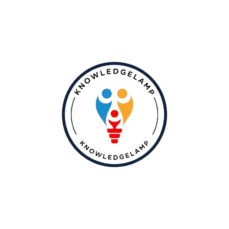In the vast landscape of human knowledge, information stands as a cornerstone, weaving through every aspect of our lives. It’s the essence that fuels our understanding, shapes decisions, and propels progress.
Defining Information
At its core, information can be understood as organized data that carries meaning. It’s not merely a collection of facts and figures but rather the interpretation and contextualization of those elements. Information is the answer to a query, the solution to a problem, or the revelation of a concept.
Importance and Ubiquity of Information
Information isn’t confined to textbooks or digital archives; it’s pervasive. From conversations between individuals to the vast web of interconnected databases, information permeates every interaction, shaping our perceptions and actions.
Characteristics of Information
Accuracy and Reliability
The credibility of information rests on its accuracy and reliability. Whether sourced from scholarly articles or through social media, dependable information is crucial in decision-making and understanding.
Relevance and Timeliness
Information gains significance when it’s relevant to a context and timely. Its value diminishes if it doesn’t address the needs or queries at hand.
Accessibility and Usability
Information must be accessible and usable by its intended audience. The manner in which it’s presented and delivered contributes to its effectiveness.
Forms of Information
Information takes diverse forms, catering to various preferences and needs. Textual, visual, audio, and multimedia formats serve to convey knowledge and ideas.
Sources and Creation of Information
The creation of information is a dynamic process, arising from human cognition or machine operations. Whether it’s crafted by individuals or generated by algorithms, information emanates from diverse sources.
Transmission and Sharing of Information
The evolution of communication mediums has revolutionized how information is disseminated. From traditional print media to the digital realm, sharing information has become instantaneous.
Storage and Retrieval of Information
The ability to store and retrieve information efficiently is pivotal. Databases and advanced search engines facilitate the access and utilization of information.
Information in the Digital Age
The digital era has brought both blessings and challenges. The abundance of information has led to information overload, necessitating skills in information literacy and management.
The Role of Information in Society
Information fuels education, empowers decision-making, fosters innovation, and drives societal progress. It’s the catalyst for change and development across various domains.
Ethical Considerations of Information
With the proliferation of information, ethical concerns arise. Safeguarding privacy, combating misinformation, and promoting digital ethics become paramount.
Conclusion
In a world inundated with data, understanding information’s nature and significance becomes imperative. Its proper utilization shapes our understanding, influences decisions, and steers us toward progress.
FAQs
1. How does information differ from data?
Information is interpreted data that carries meaning, whereas data are raw facts or figures without context or interpretation.
2. What role does information play in decision-making?
Information provides the necessary insights and knowledge that guide individuals and organizations in making informed decisions.
3. How can one combat information overload?
Developing strong information management skills, prioritizing relevant information, and employing efficient search strategies can help manage information overload.
4. Is all information available on the internet reliable?
No, the internet contains a mix of reliable and unreliable information. It’s crucial to evaluate sources and verify information before relying on it.
5. How can individuals improve their information literacy?
Engaging in critical thinking, fact-checking, and seeking diverse sources of information contribute to enhancing information literacy.
